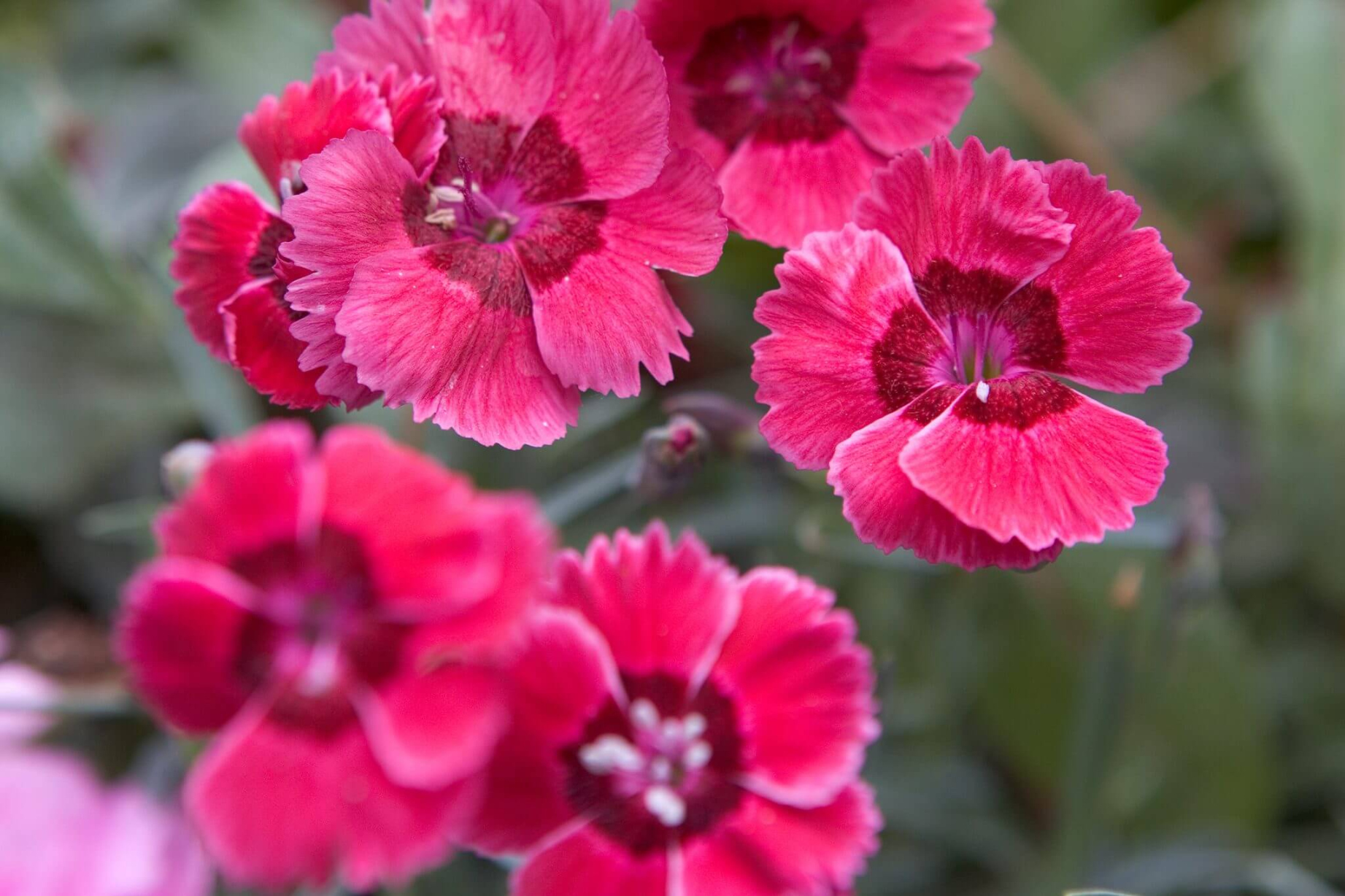Do Rabbits Eat Dianthus?
Rabbits are herbivores and have a diverse diet that mainly consists of plants. While they typically feed on grass, clovers, and vegetables, they may occasionally munch on other plants that are pleasing to their taste buds. One common question that arises is whether rabbits eat dianthus, a popular flowering plant known for its vibrant and fragrant blossoms.

Understanding Dianthus
Dianthus, also known as carnations or pinks, is a genus of flowering plants that belong to the Caryophyllaceae family. These plants are native to Europe and Asia and are cultivated for their beautiful flowers. Dianthus plants come in various colors, including pink, white, red, and purple, and are often used as ornamental plants in gardens and flower arrangements.
Rabbit Diet
Rabbits are herbivores and have a specialized digestive system that allows them to efficiently process plant material. Their diets primarily consist of grass and leafy greens, but they are known to explore other vegetation as well. However, not all plants are suitable or safe for rabbits to consume, as some can be toxic or cause digestive issues.
Do Rabbits Eat Dianthus?
While dianthus plants are not toxic to rabbits, they are not generally a preferred or natural part of their diet. Rabbits are unlikely to eat dianthus unless they have limited food options or are particularly curious. The strong scent and bitter taste of dianthus flowers often deter rabbits from consuming them.
Factors Affecting Rabbit Behavior
Several factors can influence a rabbit’s behavior towards dianthus or any other plants:
- Hunger: If a rabbit is hungry and has limited food options, it may be more willing to try plants it would typically avoid.
- Curiosity: Rabbits are curious creatures and may nibble on unfamiliar plants out of sheer curiosity. However, this does not indicate that dianthus is a regular part of their diet.
- Availability of preferred food: If a rabbit has access to a variety of grasses, leafy greens, and vegetables, it is less likely to explore other plant options.
Preventing Rabbit Damage to Dianthus
If you have dianthus plants in your garden and want to prevent rabbits from nibbling on them, there are several measures you can take:
- Fencing: Install a rabbit-proof fence around your garden to keep rabbits out. The fence should be buried several inches into the ground to prevent rabbits from burrowing underneath.
- Repellents: Use natural or commercial rabbit repellents around the dianthus plants to deter rabbits. These repellents often contain strong scents or tastes that rabbits find unpleasant.
- Companion planting: Consider planting rabbit-resistant plants near the dianthus to create a barrier and reduce the likelihood of rabbits approaching them.
Frequently Asked Questions (FAQs)
1. Are dianthus plants poisonous to rabbits?
No, dianthus plants are not toxic to rabbits. However, rabbits are unlikely to eat them due to their strong scent and bitter taste.
2. Can rabbits eat other types of flowers?
Rabbits can eat certain types of flowers, but it is not a significant part of their diet. They usually prefer grass, clovers, and leafy greens.
3. Will rabbits eat dianthus if they have no other food options?
If a rabbit is hungry and has limited food options, it may nibble on dianthus or other plants it would typically avoid. However, this is not their natural behavior.
4. What other measures can I take to protect my garden from rabbits?
Aside from fencing and repellents, you can try planting rabbit-resistant plants, using scare devices, or creating physical barriers like chicken wire around vulnerable areas.
While rabbits may occasionally taste dianthus, it is not a significant part of their diet. If you want to preserve your dianthus plants, taking preventive measures such as fencing and repellents can help deter rabbits from causing damage. Always ensure that your rabbit has access to a balanced and appropriate diet to maintain its health and well-being.
Related Articles…
Copyright Notice:
Images displayed on this website are not our property, but are procured from the internet. If you hold copyrights to any image and wish for its removal, please get in touch with us.
